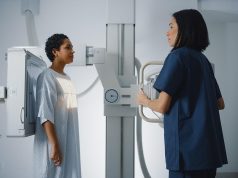Medications that alter gut bacteria might set stage for polyp development, researchers say
WEDNESDAY, April 5, 2017 (HealthDay News) — Taking antibiotics for an extended period in early to middle adulthood might increase risk for colorectal adenomas, according to a report published online April 4 in Gut.
Andrew Chan, M.D., an associate professor of medicine at Harvard Medical School in Boston, and colleagues collected data on 16,642 women 60 and older who took part in the Nurses’ Health Study. The women provided a history of antibiotic use between ages 20 and 59. They also had had at least one colonoscopy between 2004 and 2010. During that time, 1,195 colorectal adenomas were documented.
The researchers found that the use of antibiotics within the previous four years wasn’t associated with a heightened risk of colorectal adenomas, but long-term use in the past was. For example, two months of antibiotic use in her 20s or 30s increased a woman’s odds for colorectal adenomas 36 percent compared to those who didn’t use the drugs for a prolonged period. The risk rose further when the extended medication use occurred in one’s 40s or 50s. Associations were similar for low-risk versus high-risk adenomas, and appeared modestly stronger for proximal versus distal adenomas.
“These data provide additional support for the association of antibiotics with colorectal cancer and the potential mediating role of the gut microbiome in carcinogenesis,” the authors write. “Additional studies investigating the impact of antibiotic exposure with gut microbial composition and function, particularly in relation to the mechanisms underlying colorectal carcinogenesis, are warranted.”
Copyright © 2017 HealthDay. All rights reserved.








